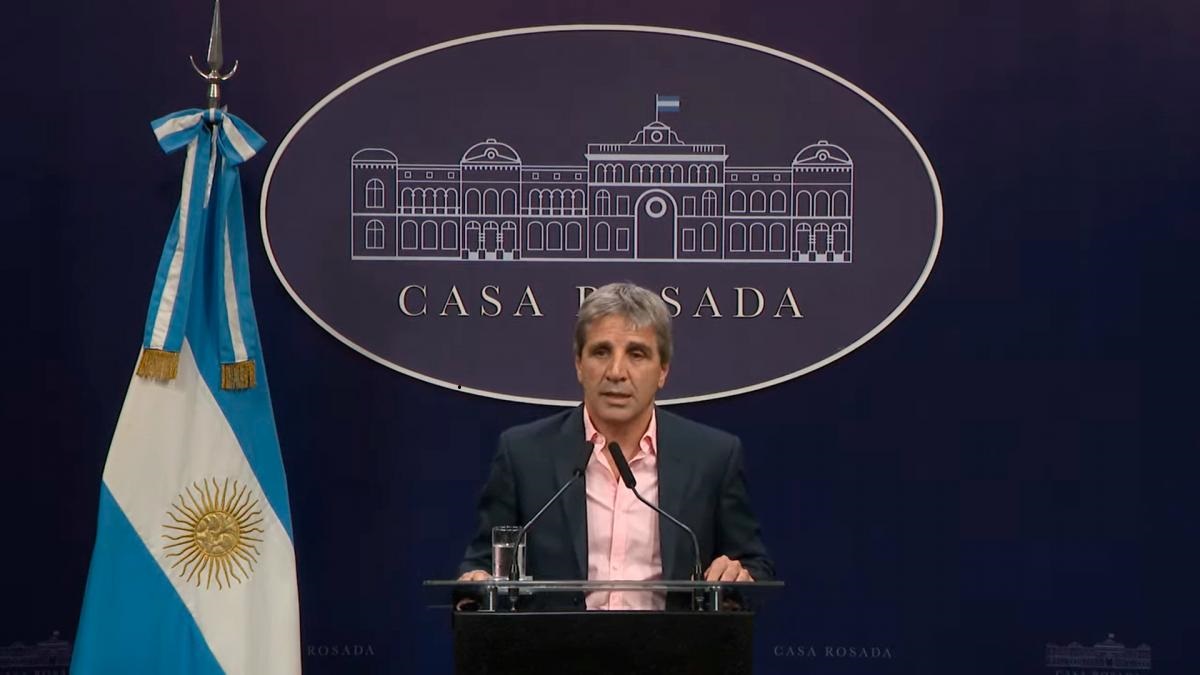
The Government sent to the Chamber of Deputies, this Wednesday, the draft fiscal package, which includes changes in the Income Tax, Monotax, Personal Assets, moratoriums, and provides for money laundering. It is an attack on 800,000 registered workers who will once again lose a percentage of their income and on the precarious workers under the form of the monotax who will have increases of up to 150%.
If the now called “Law on Palliative and Relevant Fiscal Measures” is approved, it would further worsen the social crisis, while at the same time granting important benefits to large business evaders who will be able to access money laundering at a rate of 0% and reduction of Personal Assets to 0.45%. The origin of the funds will not have any control, as Milei had already declared, enabling any illegal business, such as drug trafficking, to be free of any consequences.
Monotribute
The official Monotributo project that the Government sent to Congress increases both the billing levels and the monthly installments to be paid. In the case of category F, the increase would reach 145%, being able to pay up to $64,000; in no case will the fee be less than double what it is currently. The increase in salaries of precarious workers is well below these figures. The initial categories would be the following amounts:
• A : 12.128,39 a 26.600: + 119,3%
• B: 13.561,75 a 30.280 ; + 123.3 %
• C: 15.503,51 a 35.458 : + 128,7
• D: 19.497,94 a 45.443,80: +133,1
• E: 26,945.97 to 64,348.18; + 138.8%
• F: 33.137,61 a 80.983,00 : 144,4%
Today we met with monotributistas who reject the new increases in fees established by the Milei fiscal package. These measures will mean an additional burden for millions of workers from different professions who in many cases already suffer from labor fraud. pic.twitter.com/8On2PtDku9
— Nicolas del Caño (@NicolasdelCano) April 17, 2024
Profits
If this law is approved, the non-taxable minimum will be $1,800,000 for singles, while for married people with children it will be 2,200,000 pesos. This means that some 800,000 workers currently exempt from Profits would once again pay the tax at rates ranging from 5 to 35%. In values that start at $6,000 per month up to about $60,000 per month for those who are exempt today. And that exceeds $100,000 per month for those who earn more than $2,500,000 gross.
It is also contemplated that “the amounts provided for in this article will be adjusted annually, starting with fiscal year 2025, inclusive, by the coefficient that arises from the annual variation of the Consumer Price Index (CPI) provided by the National Institute of Statistics and Censuses (INDEC), corresponding to the month of October of the year prior to the adjustment compared to the same month of the previous year.”
Whitening
The Government seeks to increase dollar reserves and revenue (hit by the adjustment) to continue paying the fraudulent external debt, especially that contracted with the Monetary Fund by Mauricio Macri, Caputo’s previous “boss.”
The regime provides for “special exclusion subjects” from paying the tax. Thus, amounts less than US$100,000 will not pay any tax. Nor will those funds remain deposited in special accounts of the Argentine financial system until December 31, 2025, or are destined for “financial instruments” to be defined by the Executive Branch.
Those who regularize undeclared assets will be freed from all civil action and for tax, exchange, customs and administrative infractions, as well as will be exonerated from paying taxes that they had omitted to pay (profits, internal taxes, VAT, personal property and the extraordinary contribution). , called Wealth Tax). An unattainable privilege for workers who pay VAT every time they consume and are being forced to face the multiplication in the amounts of public services (mostly under private management).
In cases that do not use the options to avoid paying a percentage of the money laundered, they should pay increasing rates depending on when they enter. In the first stage, which will last until September 30, 2024, the rate on the surplus will be 5%; in the second stage, until December 31, 2024, it will be 10%; and in the third, until March 31, 2025, 15%.
Personal property
The Government included a strong reduction in Personal Assets. The changes contemplate a reduction in the floor from which the tax begins to be paid, a decrease in the rates and also gives the option of advance payment of 5 years with a reduced rate, an initiative that seeks to anticipate the income collection and thus comply with the fiscal adjustment agreed with the Monetary Fund in 2024.
They propose the creation of the Special Personal Property Tax Income Regime, which aims to reduce the maximum rate from 2.25% to 0.45%. The initial payment cannot be less than 75% of the total tax. Taxpayers who choose to join the regime “will enjoy fiscal stability until 2038 with respect to the Personal Property Tax and all other national taxes.”
In addition, for the 2023 fiscal period, “taxed assets will not be covered by the tax. […] when their joint value, determined in accordance with the norms of this law, is equal to or less than $100,000,000.” In cases of “properties intended for the residence of the taxpayer, or of the deceased in the case of undivided inheritances”, the The tax floor amounts to $350,000,000.
Another benefit is the gradual reduction of the scale of progressive rates, eliminating the existing discrimination for goods located abroad. For fiscal year 2023, the maximum rate proposed is 1.5%, which will be gradually reduced until reaching 0.25% in 2023.
Transfer of income in favor of businessmen and speculators
For businessmen everything, for workers nothing; It could be the Government’s motto if Milei had not based his electoral campaign on the fact that the adjustment was going to be paid for by the political caste. The attempt to approve what was known as the Omnibus Law ended in a total failure for the ruling party. Although the new version contains new benefits for businessmen and provincial governors, its nature in favor of the richest could take the Law of Bases to suffer a similar fate.
Source: www.laizquierdadiario.com

